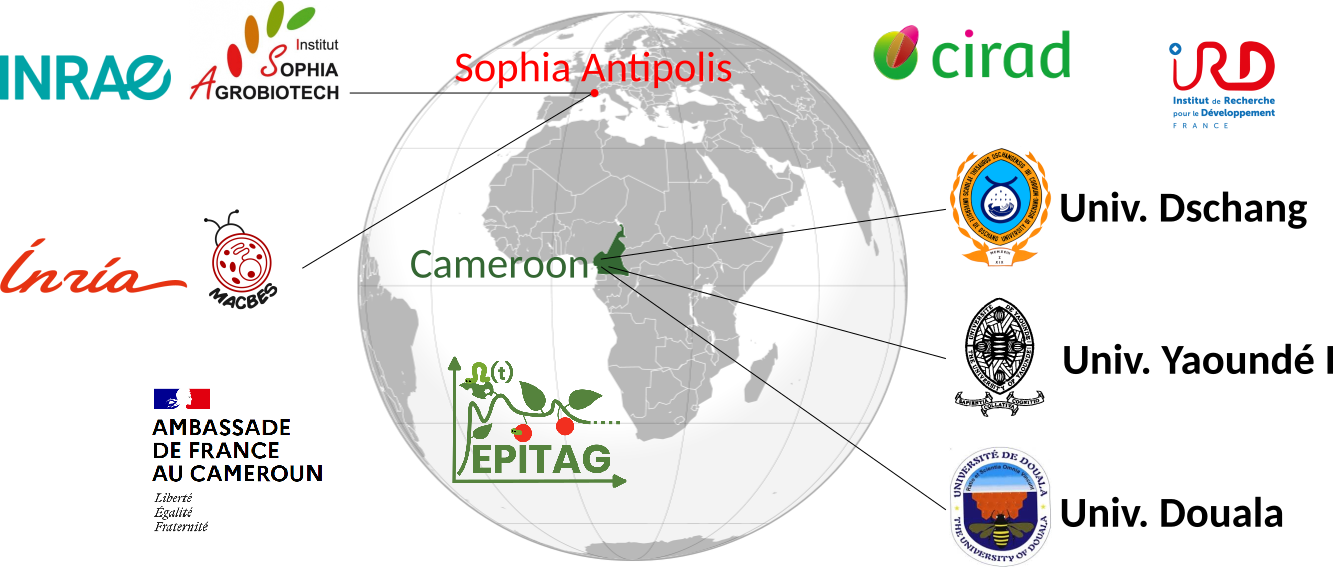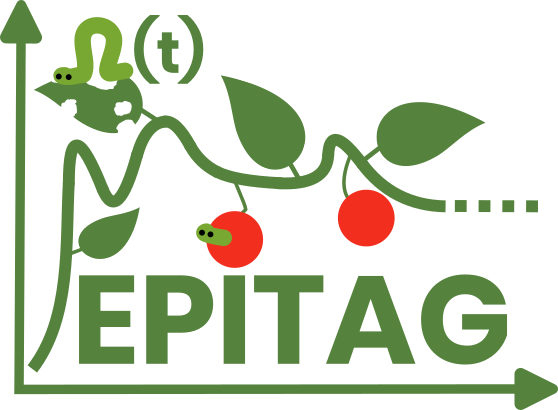EPITAG is an Inria Associate team that is part of the LIRIMA (International Laboratory for Computer Sciences and Applied Mathematics), between Inria-INRAE project BIOCORE, now MACBES, and the Universities of Douala, Dschang & Yaoundé I. It was launched in 2017 and renewed twice, in 2020 and 2025. In 2022-2024, it was supported by the TSARA programme at INRAE and the French Embassy in Cameroon.
EPITAG gathers French and Cameroonian researchers with a background in dynamical systems and control and an interest in crop diseases.

Context
Crop pests and diseases, together with weeds, destroy up to 40% of global crop yields every year and are hence a major threat to food security.
Cameroon’s tropical climate is very favourable to agriculture. With 21% of agricultural land, agriculture employs almost 43% of the working population. This sector represents 17% of the country GDP and 16% of the country export revenues (FAOSTAT & OEC 2021-2022 data). The main export crops are cocoa (5th largest producing country in 2016, 10% of exports), bananas and plantains (2%), cotton and coffee. Staple food crops include bananas and plantains, cassava, taro, maize, tomatoes, etc. IRAD promotes a sustainable development of agriculture, to ensure food security, reduce the poverty and preserve the environment. Controlling crop pests and pathogens is hence a major issue in Cameroon.
Pesticides can be applied, but they have a high financial and environmental cost. Environmentally-friendly alternatives, such as cropping practices, biological control and plant resistance, should be explored.
In this context, the use of mathematical models is particularly relevant. Models are not only used to formalise and integrate knowledge, but also to help design efficient strategies for integrated pest management. They complement experimental and field approaches, which are costly and time-consuming, especially on perennial plants such as cocoa and coffee trees.
Objectives
Our main objective is to study the epidemiology and sustainable management of tropical crop diseases and pests, mathematically and numerically, with a focus on Cameroon. Using tools from dynamical systems and control theory, our approach consists in developing and analysing dynamical models, in order to (i) better understand plant-parasite interactions, (ii) identify relevant parameters, (iii) predict the evolution of damages and (iv) provide efficient and sustainable control strategies to limit the damages.
We face two major challenges. Firstly, we want to ensure the relevance of our models. Developing tractable models, that can provide useful results, requires a deep understanding of complex processes. So it is important to collaborate with field experts and to involve stakeholders (e.g. Cirad, IRAD, CARBAP). Secondly, epidemiological data are scarce and often qualitatively known, so we need to develop methods tailored for such data.
To tackle these issues, we jointly supervise Master and PhD students.
See also: EPITAG presentation and poster (September 2023)- pdf files

